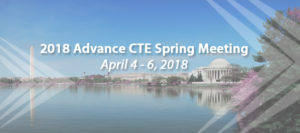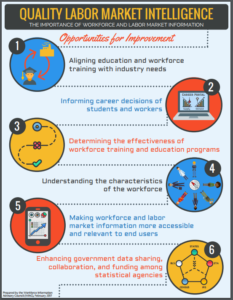CTE & Federal Policy: Recapping the Highlights of 2017
Date: January 25, 2018
Time: 1 – 2 p.m. ET
Last year marked a big year for Career Technical Education (CTE) in the federal policy arena. The U.S. House of Representatives passed a reauthorization of the Carl D. Perkins Career Technical Education Act of 2006, the House Committee on Education and the Workforce passed the “Promoting Real Opportunity, Success and Prosperity Through Education Reform” (PROSPER) Act, an update to the Higher Education Act, and states submitted their plans for implementing The Every Student Succeeds Act (ESSA). Amidst all this activity, an omnibus appropriations bill for Fiscal Year 2017 passed Congress and a sweeping tax reform bill was signed into law.
Join us on for a webinar to recap the federal policy highlights of 2017 and their impact on CTE. Participants will hear from Kimberly Green, Executive Director of Advance CTE, Kathryn Zekus, Senior Associate for Federal Policy at Advance CTE, and Debbie Mills, Director of the National Career Pathways Network.
Register for the webinar here.
State Policies Impacting CTE: 2017 Year in Review
Date: January 31, 2018
Time: 2 – 3 p.m. ET
The national profile of CTE continued to grow in 2017, with nearly every state adopting new policies related to CTE and career readiness. From redesigning accountability systems to expanding apprenticeship opportunities, state leaders are working to connect learners at all levels with seamless pathways to meaningful careers.
This webinar from Advance CTE and the Association for Career and Technical Education will unpack findings from the State Policies Impacting CTE: 2017 Year in Review report. The webinar will explore recent trends in state CTE policy and examine how the CTE policy landscape has changed over the past few years. Participants will also hear from state leaders and explore policy developments in their states.
Register for the webinar here.
Katie Fitzgerald, Senior Communications Associate



 expertise. Enhancing classroom instruction with industry experts can bring the real world into the classroom and blur the lines between education and the workplace. A successful example of this collaboration between education and the workforce can be found at our 2017 Excellence in Action award winner in the
expertise. Enhancing classroom instruction with industry experts can bring the real world into the classroom and blur the lines between education and the workplace. A successful example of this collaboration between education and the workforce can be found at our 2017 Excellence in Action award winner in the  done to prepare them, we’d like to highlight our 2017 Excellence in Action award winner in the Education & Training Career Cluster, the
done to prepare them, we’d like to highlight our 2017 Excellence in Action award winner in the Education & Training Career Cluster, the  The
The